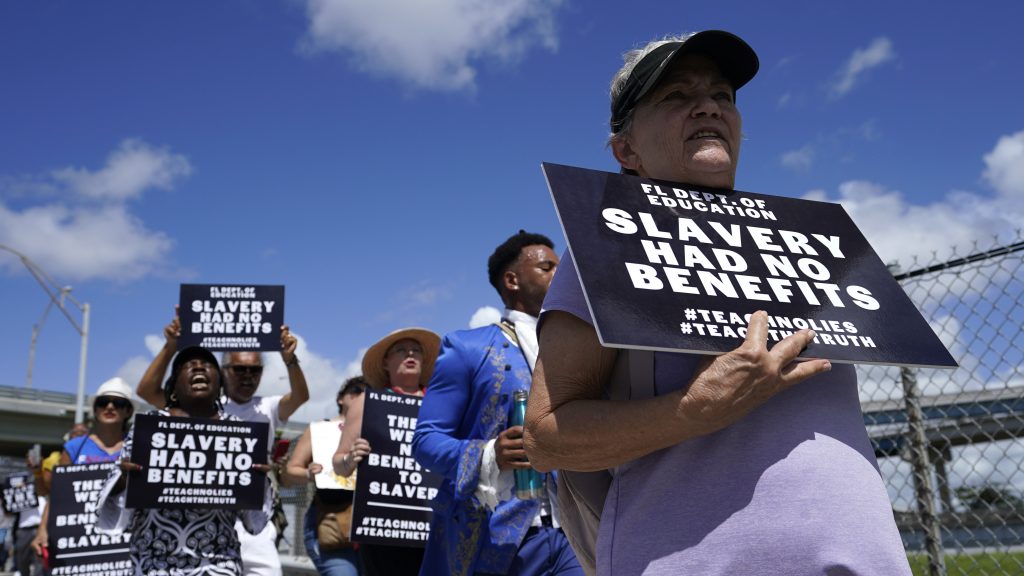Created Equal: What are the consequences of omitting America’s racial history?
Created Equal February 22, 2024Princeton African American studies professor Eddie Glaude discusses how revising or omitting Black American history impacts all of us.

People participate in the "Teach No Lies" march to the School Board of Miami-Dade County to protest Florida's new standards for teaching Black history, which have come under intense criticism for what they say about slavery, Wednesday, Aug. 16, 2023, in Miami.
Nikki Haley was criticized for omitting slavery when she was asked about the cause of the civil war but she has since walked her statement back.
Last summer, the Florida State Board of Education faced backlash for updating standards on how African American history should be taught in the state’s public schools, including controversial language about teaching students how some Black Americans gained useful skills because of slavery.
On this episode of Created Equal, host Stephen Henderson speaks with Princeton African American studies professor Eddie Glaude about what caused the American Civil War and how revising or omitting that history impacts all of us.
Subscribe to Created Equal on Apple Podcasts, Spotify, Google Podcasts, NPR.org or wherever you get your podcasts.
Guest:
Eddie Glaude is a professor of African American studies at Princeton University. He’s also an author whose works include “Democracy in Black: How Race Still Enslaves the American Soul,” “In a Shade of Blue: Pragmatism and the Politics of Black America,” and the New York Times bestseller, “Begin Again: James Baldwin’s America and Its Urgent Lessons for our Own.”
“What are our social obligations to each other — and what’s the role of government in ensuring that baseline level of existence,” Glaude asked on the show. “We have to have that argument because where we are now is that some people believe that certain things belong to them — that a certain social contract is only relevant to them and to theirs. And the other — all of us — should just simply shut up and be grateful that we’re here.”
Trusted, accurate, up-to-date.
WDET strives to make our journalism accessible to everyone. As a public media institution, we maintain our journalistic integrity through independent support from readers like you. If you value WDET as your source of news, music and conversation, please make a gift today.
